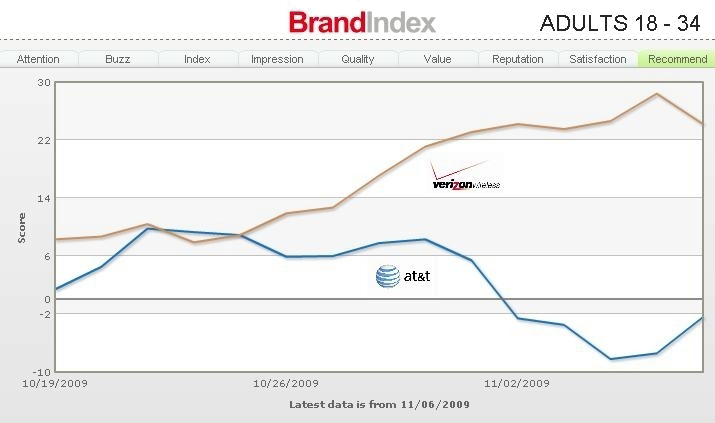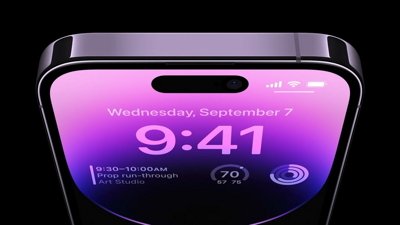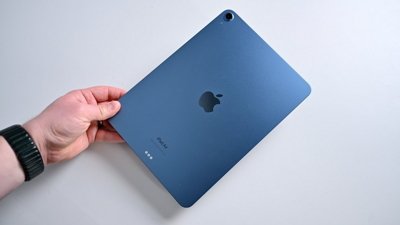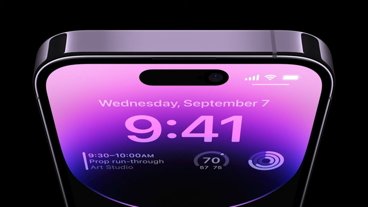Verizon's advertising propels brand perception while AT&T sinks
Daily tracking from YouGov's BrandIndex shows that scores associated with the Verizon Wireless brand have soared since the Droid advertising campaign launched on Oct. 18, up until the launch of the Droid last Friday. Verizon's score went from 8.3 to 24.2 on the study's scale, which ranges from -100 to 100.
During the same frame, AT&T's brand perception dropped, from 1.4 on Oct. 18 to -2.4 by Nov. 6. The ongoing study surveys 5,000 people each weekday from a representative U.S. population sample. More than 1.2 million people are interviewed each year, and the research is said to have a margin of error of +/- 2 percent.
Respondents in the target 18- to 34-year-old demographic were asked the question, "Would you recommend the brand to a friend?" While AT&T and Verizon were comparable in the latter half of October, Verizon pulled well ahead of the second-largest wireless carrier come November, leading up to the debut of the Motorola Droid.
The latest study follows a tough summer for AT&T, when overall consumer perception dropped significantly following the launch of the iPhone 3GS. That change was likely at least partially attributed, BrandIndex said, to AT&T's inability to meet bandwidth needs on its network following the launch of Apple's latest handset.
The Droid launched Friday to positive reviews. Building up to its release, a series of advertisements targeted Apple's iPhone, making claims of shortcomings with the tagline "iDon't."
In addition, Verizon has stepped up its advertising against the AT&T network, lampooning the iPhone "There's an app for that" phrase with the slogan "There's a map for that." Last week, AT&T filed a lawsuit over the advertisements, claiming that Verizon is misrepresenting its coverage areas and misleading consumers.
 Neil Hughes
Neil Hughes














 Christine McKee
Christine McKee
 Charles Martin
Charles Martin
 William Gallagher
William Gallagher
 Andrew Orr
Andrew Orr
 Malcolm Owen
Malcolm Owen

 Chip Loder
Chip Loder








55 Comments
Wow- that was fast. The cellphone market is extremely fickle.
Verizon was extremely smart to buy all that baseball playoffs and World Series coverage.
Wow- that was fast. The cellphone market is extremely fickle.
Verizon was extremely smart to buy all that baseball playoffs and World Series coverage.
I don't think it's fickleness so much as it is people fed up with AT&T service and word is starting to get around. I know for myself if the iPhone was announced as being available on Verizon I would jump ship that day.
Makes sense, they do have more 3G coverage and their ads express this fact very well. There are inherent limitations, like speed compared to AT&T’s 3G network and simultaneous voice and data, and even places where AT&T’s EDGE is faster than Verizon’s EVDO, but that isn’t something that the average consumer is going to understand. They’re doing a great job increasing mindshare with both their network and the Droid.
The only reason I stick with AT&T is so that I can upgrade to the iPhone. Even then, the coverage is so terrible so I've often contemplated just getting an Ipod touch and jumping ship.
I don't think it's fickleness so much as it is people fed up with AT&T service and word is starting to get around. I know for myself if the iPhone was announced as being available on Verizon I would jump ship that day.
I'm not sure that I would. AT&T Service around here is pretty good. I guess proximity is everything.....that and a flat terrain (no hills, no valleys, no tall buildings).
Doesn't Verizon have a 5GB cap on their 'unlimited' data service?